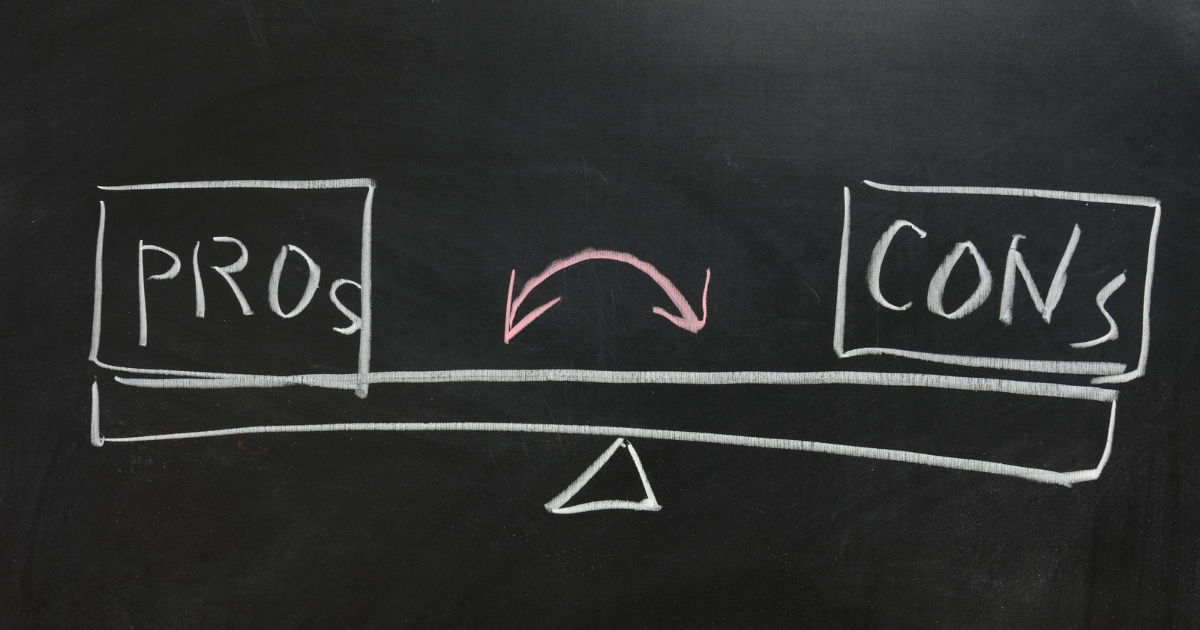Table of Contents
Renting Your First Apartment:
Renting your first apartment can be a major milestone in your life. It’s a sign of independence, a chance to create a space of your own, and an opportunity to explore a new neighborhood or city. However, with this exciting step comes a lot of decisions and responsibilities that can feel overwhelming. That’s why it’s important to take the time to fully understand the pros and cons of renting and to prepare for a successful rental experience.

In this article, we’ll explore the benefits and drawbacks of Renting your first apartment and provide tips for navigating the rental process.
Whether you’re a recent college graduate, a young professional, or someone looking to downsize, understanding the ins and outs of renting can help you make informed decisions and set yourself up for a successful and enjoyable rental experience. If you want a guide on the pros and cons of buying property check it out.
Pro: Flexibility
One of the major benefits of Renting your first apartment is the flexibility it offers. With a rental property, you’re not tied down to a long-term commitment like you would be with a mortgage. This means you have more freedom to move around as your needs and desires change.
Whether you need to relocate for a new job opportunity or want to upgrade to a bigger space, renting your first apartment provides the flexibility to make those changes.
Another aspect of flexibility when it comes to Renting your first apartment is the variety of options available. Depending on your location and budget, you can choose from a range of rental properties, including apartments, condos, and townhouses. Each type of property offers unique features and benefits, so you can find a space that fits your lifestyle and preferences.
Con: Limited Decoration
While renting your first apartment provides flexibility in terms of moving around, it can also come with limitations when it comes to personalizing the space. Many landlords have restrictions on things like painting, hanging decorations, or even using certain types of furniture. This can make it difficult to truly make the space your own and create a sense of home.
However, there are still ways to add personal touches to your rental apartment. For example, you can use removable wallpaper or decals to add a pop of color to your walls or invest in some versatile furniture pieces that can be easily moved from one apartment to the next. It may take some creativity and flexibility, but it is possible to make a rental space feel like home.
Pro: No Maintenance Costs

One of the major advantages of renting your first apartment is that you typically won’t have to worry about major maintenance costs. When you rent, your landlord is responsible for taking care of repairs and maintenance, which can save you time, money, and stress. From leaky faucets to malfunctioning appliances, your landlord is responsible for fixing any issues that arise.
Additionally, many rental properties come with amenities like on-site maintenance services, laundry facilities, and fitness centers. These features can make life easier and more convenient, especially for those who are busy or don’t have the time or resources to take care of maintenance themselves.
Con: Risk of Lease-Breaking
While renting your first apartment can be a convenient and cost-effective option, there is always a risk of lease breaking. If you need to move before your lease is up, you may be responsible for paying rent until the landlord can find a new tenant. This can be a significant financial burden, especially if you’re not prepared for it.
To avoid this risk, it’s important to carefully consider the terms of your lease and make sure you’re comfortable with the length of the commitment. Additionally, it can be helpful to have a contingency plan in place in case unexpected circumstances arise that require you to break your lease.
Overall, renting your first apartment can provide flexibility, lower upfront costs, and amenities like maintenance services and on-site facilities. However, it can also come with limitations on personalization, limited financial returns, and the possibility of rent hikes. It’s important to carefully consider the pros and cons and determine what’s best for your situation.
Pro: Lower Upfront Costs
Another benefit of Renting your first apartment is that it typically comes with lower upfront costs than buying a home. When you rent, you typically only need to provide a security deposit and the first month’s rent, whereas buying a home requires a down payment, closing costs, and other fees. This can make renting a more accessible option for those who may not have the funds for a large upfront payment.
Additionally, renting your first apartment can also provide more financial flexibility in terms of budgeting. With a set monthly rent payment, it’s easier to budget and plan for your expenses without unexpected costs that come with homeownership like repairs, property taxes, and homeowner’s insurance.
Con: Limited Financial Returns
One of the downsides of renting your first apartment is that it doesn’t provide the same potential for financial returns as homeownership. When you rent, you’re essentially paying someone else’s mortgage and not building equity in a property. This means you won’t see any financial benefits like appreciation in value or the ability to sell for a profit.
However, it’s important to consider the long-term financial implications and whether homeownership is the right choice for you. Renting can be a smart financial decision for those who prioritize flexibility and convenience over long-term financial returns.
Pro: Easier to Budget and Plan

As previously mentioned, renting your first apartment can provide more financial flexibility and make it easier to budget and plan for your expenses. With a set monthly rent payment, you can more accurately predict your monthly expenses and plan accordingly. This can make it easier to save for other financial goals like travel, education, or retirement.
Additionally, with rental property, you won’t have to worry about unexpected expenses like major repairs or property taxes, which can come as a surprise for homeowners. This can provide peace of mind and financial stability for those who prefer a more predictable budget.
Con: Risk of Rent Hikes
One potential downside of Renting your first apartment is the risk of rent hikes. Landlords can raise the rent at the end of your lease term or during a month-to-month lease agreement, which can increase your monthly expenses and make it more difficult to budget.
To mitigate this risk, it’s important to carefully review the terms of your lease and make sure you’re comfortable with the length of the commitment. Additionally, it can be helpful to research the rental market in your area to get an idea of what to expect in terms of rent increases.
Overall, renting your first apartment can be a smart financial decision for those who prioritize flexibility, convenience, and lower upfront costs. However, it’s important to carefully consider the potential drawbacks like limited personalization, limited financial returns, and the possibility of rent hikes. By weighing the pros and cons and determining what’s best for your situation, you can make an informed decision about Renting your first apartment.
Pro: No Maintenance Responsibilities
One of the biggest advantages of Renting your first apartment is that you won’t have to worry about any maintenance responsibilities. When you rent, your landlord is responsible for all repairs and maintenance of the property. This can be a huge relief for those who don’t have the time, money, or expertise to handle maintenance and repairs.
Not only does this save you money on unexpected repairs, but it also saves you time and stress. You won’t have to worry about finding a reliable contractor, coordinating repairs, or handling any potential disputes with neighbors or contractors. Instead, you can focus on enjoying your space and creating a home that reflects your style and needs.
Con: Limited Personalization
One potential downside of Renting your first apartment is that you may be limited in terms of personalization. When you rent, you may not be able to make major renovations or changes to the property without the landlord’s approval. This can limit your ability to make the space truly feel like home.
However, there are still ways to personalize your rental space and make it feel like your own. Simple changes like adding decor, painting accent walls, or upgrading fixtures can go a long way in creating a space that reflects your personality and style.
Pro: Access to Amenities
Another advantage of Renting your first apartment is that you may have access to a variety of amenities that you may not be able to afford if you were to buy a home. Many apartment complexes offer amenities like pools, gyms, and community spaces that can enhance your quality of life and provide a sense of community.
Additionally, renting can provide access to prime locations in desirable neighborhoods that may be out of reach for homeowners. This can make it easier to commute, access local amenities like restaurants and shopping, and participate in local events and activities.
Con: Limited Control Over Living Space
One potential drawback of Renting your first apartment is that you may have limited control over your living space. When you rent, you’re subject to the landlord’s rules and regulations, which can limit your ability to make changes or alterations to the property.
Additionally, you may be subject to noise and disturbance from neighboring units or shared spaces. This can be frustrating for those who prefer a more peaceful and private living environment.
Overall, Renting your first apartment can be a smart financial decision for those who prioritize convenience, flexibility, and accessibility. However, it’s important to carefully consider the potential drawbacks like limited personalization, limited control over living space, and the risk of rent hikes. By weighing the pros and cons and determining what’s best for your situation, you can make an informed decision about Renting your first apartment.
Conclusion

In conclusion, Renting your first apartment can be a smart financial decision for those who prioritize flexibility, convenience, and lower upfront costs. While there are potential drawbacks like limited personalization and the risk of rent hikes, renting can provide financial stability, access to amenities, and a sense of community.
By carefully considering the pros and cons and making an informed decision about renting, you can create a comfortable and enjoyable living environment that meets your needs and budget.
FAQ’s
Is it better to rent or buy your first home?
Whether it’s better to rent or buy your first home depends on your financial situation, lifestyle, and priorities. Renting can provide flexibility, lower upfront costs, and no maintenance responsibilities while buying can offer long-term financial stability, equity, and the ability to make changes and improvements to the property. It’s important to carefully weigh the pros and cons and consider factors like your budget, career plans, and desired lifestyle before making a decision.
How can I personalize my rental space without making major renovations?
There are several ways to personalize your rental space without making major renovations. Simple changes like adding decor, hanging curtains, or upgrading fixtures can go a long way in creating a space that reflects your personality and style. You can also use removable wallpaper, area rugs, or temporary adhesive products to add color and texture to your space. Just be sure to check with your landlord first to ensure that any changes are allowed and won’t result in additional fees.
How do I negotiate rent with my landlord?
Negotiating rent with your landlord can be a tricky process, but it’s important to approach the conversation with confidence, professionalism, and a clear understanding of your budget and the local rental market. You can start by researching comparable rental properties in the area and presenting your case for a lower rent based on factors like location, amenities, and rental history. It’s also important to be willing to compromise and negotiate on other terms like lease length or maintenance responsibilities.
What should I look for when renting my first apartment?
When Renting your first apartment, there are several key factors to consider, including location, price, amenities, safety, and rental history. You should also take the time to tour the property and ask questions about maintenance, repairs, and any restrictions on personalization. Additionally, it’s important to read and understand the lease agreement before signing it to ensure that you’re comfortable with the terms and obligations.
How can I ensure financial stability while renting my first apartment?
Ensuring financial stability while Renting your first apartment requires careful budgeting, planning, and communication with your landlord. You should start by creating a realistic monthly budget that includes rent, utilities, and any other necessary expenses. It’s also important to build up an emergency fund to cover unexpected expenses like repairs or job loss. Additionally, you can communicate with your landlord about any concerns or issues with rent increases or lease renewals to ensure that you’re able to maintain financial stability over the long term.






